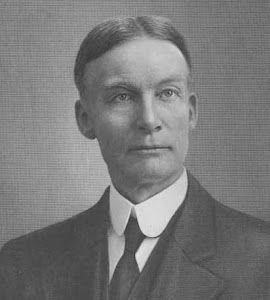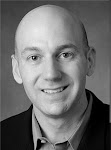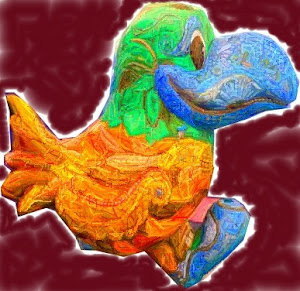
"In fact, the position of the different fractions ranked according to their interest in the different types of reading-matter tends to correspond to their position when ranked according to volume of cultural capital as one moves towards the rarer types of reading, which are known to be those most linked to educational level and highest in the hierarchy of cultural legitimacy." (Bourdieu, Distinction, page 116)
In this morning’s edition of insidehighered.com, Scott McLemee has an article about professors’ bookshelves. I read the article as an affirmation of Bourdieu’s insights about the centrality of cultural capital and the display of markers of our cultural knowledge. He quotes journalist Ezra Klein as saying “Bookshelves are not for displaying books you’ve read. Those books go in your office, or near your bed, or on your Facebook profile. Rather, the books on your shelves are there to convey the type of person you would like to be. I am the type of person who would read long biographies of Lyndon Johnson, despite not being the type of person who has read any long biographies of Lyndon Johnson. I am the type of person who is very interested in a history of the Reformation, but am not, as it happens, the type of person with the time to read 900 pages on the subject.”
Although I’ve read plenty of Bourdieu, and although I realize that I’m caught in these webs of cultural capital acquisition and exchange just as much anyone else, I try to rise above it by only having books on my shelf that I’ve read or intend to read in the next year. But, now that I think about it, all of my books about Jonestown, and all of my books about movie stars from the 1920’s and 30’s, are at home. Could Bourdieu explain this shelving choice? Maybe I don’t want my colleagues to think that I’m obsessed with a so-called “death cult” when they walk into my office? Maybe I want to convey the impression that I just don’t have time for Jean Harlow or Greta Garbo (because I’m thinking about sociology all the time)?
But enough about me – what does your bookshelf say about YOU?



4 comments:
At home, I have a ton of "gourmet" cookbooks. You name it and I probably have a recipe for it. I do cook from these recipes, but there's probably about 10 books that I have never attempted to make anything out of (too complicated or require strange ingredients that I've never heard of). In my office, there's the collection of all the books I've gained from seminars, plus those I've bought based on my research interests. Would I ever take one from my office and switch it with one from my home? No. Like Brian, I don't want people to know that I do anything other than sociology all the time when I'm in my office. At home, I want for people coming over to see my complex, "sophisticated" side. I want them to see the array cookbooks and the tiny row of books that strangely resembles the "New Releases" section in Borders.
This is how I display how I want to look. This is where I position myself in the complex webs of cultural capital. And it's not just books at my home and office, it's art. At home, the walls are covered with vintage travel prints. At the office, I have two re-touched photographic images of sunny and beautiful Italy. What do these images say about me? I don't know.
Ada
my bookshelf: David Eddings, JK Rowling, RA Salvatore, Douglas Adams, Vonnegut... so, I'm the type of person who wants to be seen as someone with their head in the clouds and with a slightly twisted sense of sarcasm? Ironically, none of my "school" books ever end up on my shelves, though Sidewalk might find its place onto one of my shelves.
Hi mrabbi, Thanks for taking the time to comment. I really appreciate it. I hope Sidewalk makes it to your bookshelf someday, but I understand the desire to keep your books grouped by theme. Your shelf definitely shows a certain level of cultural capital, and I think you’ve probably characterized its “presentation of self.” The inclusion of Rowling reminds me of a sociologist who said that Americans are “cultural omnivores.” Unlike the top-down French cultural hierarchy of the 1970s/80s (the main focus in Bourdieu’s book Distinction), Americans “score cultural capital points” (so to speak) for knowing about “low” culture or popular culture. Again, thanks for sharing your insights. That great that you read so much quality fiction because it just seems like people are reading less and less.
Hi Ada! I *totally* know what you mean about cookbooks. I love to cook, and there are a few cookbooks I’ve used routinely. But I have over a dozen cookbooks that just stare at me, full of complicated recipes I just know someday I’m crack into. Someday. But I don’t want to take them down because it will be like admitting defeat, and – yes – I don’t want to lose the respectability they confer to the bookshelf. My brother has an entirely different relationship to his cookbook collection because he has the cultural capital to get the formal curriculum (recipes, ingredients, cooking times) and the informal curriculum (inspiration and all the side knowledge I fail to pick up on because I lack the culinary cultural capital).
So, Ada, what’s your favorite cookbook?
-- Brian
I have several bookshelves throughout my house... in addition to the two in my home office, where I store my sociology/feminist theory/public policy books, there's the bookcase in the living room, full of my daughter's board games - Operation Shrek, anyone? Then the huge bookcase in my finished basement... this is the one where you'll learn the most about me. I'm very particular about the books that I buy; I believe there are relatively few fiction books worth purchasing. In fact, when I decide to buy a new book, it has to pass the “first page test” or it can stay at Borders! So on my shelves you'll find poetry by Shel Silverstein, Allen Ginsburg and Camille Paglia (someday, ask me about my "one night stand" with CP!), fiction by my favorite authors: William Faulkner, Barbara Kingsolver, Amy Tan and Isabel Allende, and then a random assortment of books related to peace, the environment, and globalization (you'll find Nelson Mandela here). Finally, in my nightstand I keep a volume of Flannery O'Connor, safely tucked away for those few precious moments when I can afford a short read purely for pleasure. I’m not sure how my taste in literature positions me in the web of cultural capital – I just know that I have a preference for beautiful writing, words that have the power to transport me instantly to another place.
Post a Comment